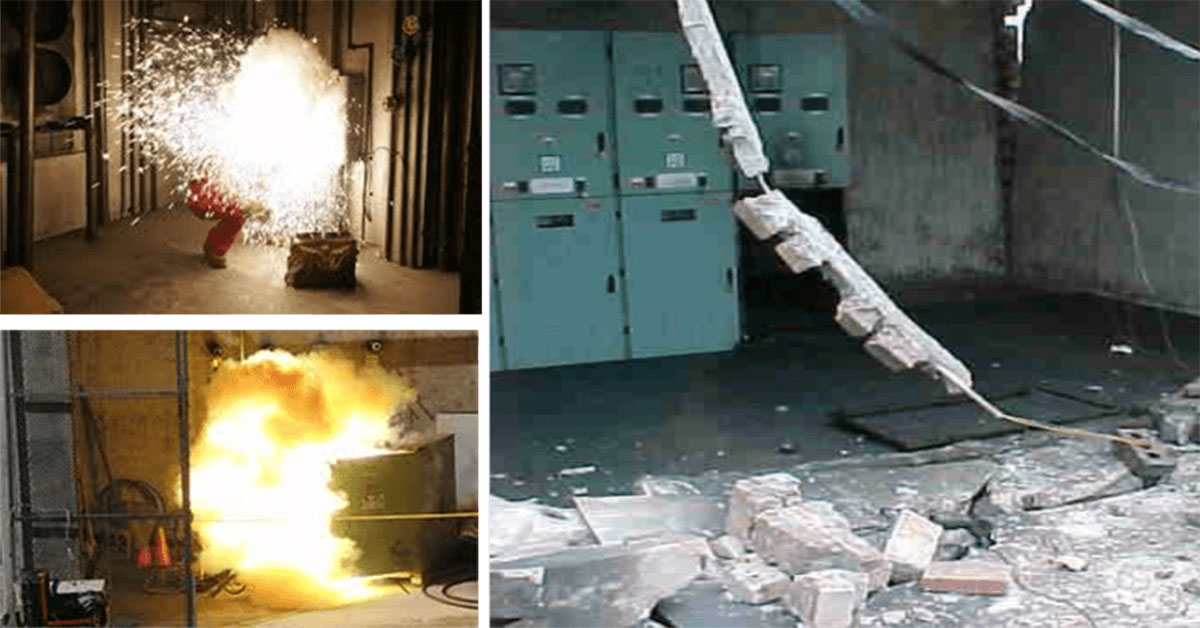Bottled Water Company Implements Large-Format IR Windows

One of North America’s leading bottled water companies - dedicated to both providing customers with healthy hydration options and to keeping their employees safe - needed a solution to help optimize their asset life cycles. Their primary goal was defining cost-effective, consistent maintenance processes for their facilities, and adopting the technologies needed to support and sustain these processes throughout the U.S. and Canada.
The company brought in consultants for recommendations on placement, sizing, and types of infrared windows to be installed at the Ontario, Canada facility. After an initial site survey, the consultants recommended the IRW-xPC series in various sizes to complete this project. The IRW-xPC series is a NEMA 4 / IP65 rated IR window and ideal for indoor applications. Available sizes are 6, 12, and 24 inches.
ANALYSIS OF INSPECTION PROGRAM
The company developed a reliability and maintenance policy that includes a 3- to 5-year improvement plan. This policy was then communicated to all employees. The company outlined all essential reliability and maintenance elements, their key performance indicators, why these are important and the importance of a Reliability Centered Maintenance (RCM) and Reliability Based Maintenance (RBM) program for overall plant safety.
The company had done the necessary research and determined that they would retrofit using the transparent polymer infrared windows - a safer method of conducting standards-compliant inspections. It was decided by the reliability team to implement the large format infrared polymer windows for main switchgear bus connections; main breaker connections and fused switches to help eliminate the hazard of live work by finding hot spots through the IR windows.

Consultants chose large-format IR windows in several sizes for the project
As a result, more frequent inspections of energized equipment could be performed by retrofitting with IR windows for routine inspections. The closed panel inspections with the windows in place did not require the elevated levels of Personal Protective Equipment (PPE) mandated in NFPA 70E, thus reducing time and maintenance costs. Thermal imaging was not new to the maintenance and reliability team as they had previously retrofitted some equipment with traditional round calcium fluoride windows. However, it was determined that a transparent polymer IR window available in various large formatted sizes would provide both visual and thermal inspection with fewer units needing to be installed.
The polymer-based IR windows are unaffected by environmental and mechanical stresses that often impact IR windows fitted to electrical distribution equipment. By installing polymer-based windows, the company could help ensure that temperature data collected through the IR window would be accurate and reliable for the whole life of the installation.
Industrial-grade IR windows meet mandatory impact and load testing requirements of UL, CSA. IEEE and IEC. With the infrared windows installed, there was no need to remove panels or wear increased levels of PPE. Inspections could now be performed more often and on electrical equipment that had previously been considered “uninspectable” due to high levels of arc flash incident energy.

The bottling company installed 24-inch large-format IR windows in main breaker buss cabinets
The installation process proceeded smoothly and included:
• Pre-planning to identify the equipment and obtain approval to shut down.
• De-energizing the equipment with two electricians to make sure it was safely isolated, locked out and tagged out.
• Once de-energized, the two electricians removed all covers on the equipment in question.
• The IR windows were installed using supplied drill/cut templates in the appropriate location and the covers were replaced.
• Appropriate PPE was put on by the electricians and the equipment was
re-energized.
• Together with operations, the electricians confirmed the equipment was operating at normal load levels and allowed sufficient time for the equipment to become thermally stable.
• Thermographer electrician then performed the infrared inspection on the equipment to secure baseline temperature data.
• Personnel completed the inspection by taking notes of any problems discovered.

Incoming line connection and main breaker cabinets were also fitted with 24-inch windows
RESULTS
The bottled water company has recognized a huge savings in time and money with the implementation of transparent polymer infrared windows into their condition-based monitoring program. The use of polymer IR windows allows more convenient and frequent inspections resulting the ability to catch and fix potential problems long before they turn into unexpected outages. In this way, the bottled water locations will see increased Mean Time Between Failure (MTBF) on their critical electrical infrastructure. Most large facilities with large distribution power systems find that their insurance provider requires annual IR inspections of their electrical systems. This mandate is a direct result of verbiage found in NFPA 70B but retrofitting IR windows enables the facility to perform these inspections in a fraction of the time and in a much safer way.
Based on the results at the first sites, the bottled water company has now proceeded with implementation of the IR window solutions at 29 of their sites around North America.



